复次。阿难。云何六入。本如来藏。妙真如性。阿难。即彼目精瞪发劳者。兼目与劳。同是菩提瞪发劳相。因于明暗二种妄尘。发见居中。吸此尘象。名为见性。此见离彼明暗二尘。毕竟无体。如是。阿难。当知是见。非明暗来。非于根出。不于空生。何以故。若从明来。暗即随灭。应非见暗。若从暗来。明即随灭。应无见明。若从根生。必无明暗。如是见精。本无自性。若于空出。前瞩尘象。归当见根。又空自观。何关汝入。是故。当知眼入虚妄。本非因缘。非自然性。
阿难。譬如有人。以两手指急塞其耳。耳根劳故。头中作声。兼耳与劳。同是菩提瞪发劳相。因于动静二种妄尘。发闻居中。吸此尘象。名听闻性。此闻离彼动静二尘。毕竟无体。如是。阿难。当知是闻。非动静来。非于根出。不于空生。何以故。若从静来。动即随灭。应非闻动。若从动来。静即随灭。应无觉静。若从根生。必无动静。如是闻体。本无自性。若于空出。有闻成性。即非虚空。又空自闻。何关汝入。是故。当知耳入虚妄。本非因缘。非自然性。
阿难。譬如有人。急畜其鼻。畜久成劳。则于鼻中。闻有冷触。因触分别。通塞虚实。如是乃至诸香臭气。兼鼻与劳。同是菩提瞪发劳相。因于通塞二种妄尘。发闻居中。吸此尘象。名嗅闻性。此闻离彼通塞二尘。毕竟无体。当知是闻。非通塞来。非于根出。不于空生。何以故。若从通来。塞自随灭。云何知塞。如因塞有。通则无闻。云何发明香臭等触。若从根生。必无通塞。如是闻体。本无自性。若从空出。是闻自当回嗅汝鼻。空自有闻。何关汝入。是故。当知鼻入虚妄。本非因缘。非自然性。
阿难。譬如有人。以舌舐吻。熟舐令劳。其人若病。则有苦味。无病之人。微有甜触。由甜与苦。显此舌根。不动之时。淡性常在。兼舌与劳。同是菩提瞪发劳相。因甜苦淡二种妄尘。发知居中。吸此尘象。名知味性。此知味性。离彼甜苦。及淡二尘。毕竟无体。如是。阿难。当知如是尝苦淡知。非甜苦来。非因淡有。又非根出。不于空生。何以故。若甜苦来。淡即知灭。云何知淡。若从淡出。甜即知亡。复云何知甜苦二相。若从舌生。必无甜淡。及与苦尘。斯知味根。本无自性。若于空出。虚空自味。非汝口知。又空自知。何关汝入。是故。当知舌入虚妄。本非因缘。非自然性。
阿难。譬如有人。以一冷手。触于热手。若冷势多。热者从冷。若热功胜。冷者成热。如是以此合觉之触。显于离知。涉势若成。因于劳触。兼身与劳。同是菩提瞪发劳相。因于离合二种妄尘。发觉居中。吸此尘象。名知觉性。此知觉体。离彼离合违顺二尘。毕竟无体。如是。阿难。当知是觉。非离合来。非违顺有。不于根出。又非空生。何以故。若合时来。离当已灭。云何觉离。违顺二相。亦复如是。若从根出。必无离合违顺四相。则汝身知。元无自性。必于空出。空自知觉。何关汝入。是故。当知身入虚妄。本非因缘。非自然性。
阿难。譬如有人。劳倦则眠。睡熟便寤。览尘斯忆。失忆为妄。是其颠倒生住异灭。吸习中归。不相逾越。称意知根。兼意与劳。同是菩提瞪发劳相。因于生灭二种妄尘。集知居中。吸撮内尘。见闻逆流。流不及地。名觉知性。此觉知性。离彼寤寐生灭二尘。毕竟无体。如是。阿难。当知如是觉知之根。非寤寐来。非生灭有。不于根出。亦非空生。何以故。若从寤来。寐即随灭。将何为寐。必生时有。灭即同无。令谁受灭。若从灭有。生即灭无。孰知生者。若从根出。寤寐二相随身开合。离斯二体。此觉知者。同于空花。毕竟无性。若从空生。自是空知。何关汝入。是故。当知意入虚妄。本非因缘。非自然性。
复次。阿难。云何十二处。本如来藏。妙真如性。
阿难。汝且观此祇陀树林。及诸泉池。于意云何。此等为是色生眼见。眼生色相。阿难。若复眼根。生色相者。见空非色。色性应销。销则显发一切都无。色相既无。谁明空质。空亦如是。若复色尘。生眼见者。观空非色。见即销亡。亡则都无。谁明空色。是故。当知见与色空。俱无处所。即色与见。二处虚妄。本非因缘。非自然性。
阿难。汝更听此祇陀园中。食办击鼓。众集撞钟。钟鼓音声。前后相续。于意云何。此等为是声来耳边。耳往声处。阿难。若复此声。来于耳边。如我乞食室罗筏城。在祇陀林。则无有我。此声必来阿难耳处。目连迦叶。应不俱闻。何况其中一千二百五十沙门。一闻钟声。同来食处。若复汝耳。往彼声边。如我归住祇陀林中。在室罗城。则无有我。汝闻鼓声。其耳已往击鼓之处。钟声齐出。应不俱闻。何况其中象马牛羊。种种音响。若无来往。亦复无闻。是故。当知听与音声。俱无处所。即听与声。二处虚妄。本非因缘。非自然性。
阿难。汝又嗅此炉中栴檀。此香若复燃于一铢。室罗筏城四十里内。同时闻气。于意云何。此香为复生栴檀木。生于汝鼻。为生于空。阿难。若复此香生于汝鼻。称鼻所生。当从鼻出。鼻非栴檀。云何鼻中有栴檀气。称汝闻香。当于鼻入。鼻中出香。说闻非义。若生于空。空性常恒。香应常在。何藉炉中。爇此枯木。若生于木。则此香质。因爇成烟。若鼻得闻。合蒙烟气。其烟腾空。未及遥远。四十里内。云何已闻。是故。当知香鼻与闻。俱无处所。即嗅与香。二处虚妄。本非因缘。非自然性。
阿难。汝常二时。众中持钵。其间或遇酥酪醍醐。名为上味。于意云何。此味为复生于空中。生于舌中。为生食中。阿难。若复此味。生于汝舌。在汝口中。只有一舌。其舌尔时已成酥味。遇黑石蜜。应不推移。若不变移。不名知味。若变移者。舌非多体。云何多味。一舌之知。若生于食。食非有识云何自知。又食自知。即同他食。何预于汝。名味之知。若生于空。汝啖虚空。当作何味。必其虚空。若作咸味。既咸汝舌。亦咸汝面。则此界人。同于海鱼。既常受咸。了不知淡。若不识淡。亦不觉咸。必无所知。云何名味。是故。当知味舌与尝。俱无处所。即尝与味。二俱虚妄。本非因缘。非自然性。
阿难。汝常晨朝以手摩头。于意云何。此摩所知。谁为能触。能为在手。为复在头。若在于手。头则无知。云何成触。若在于头。手则无用。云何名触。若各各有。则汝阿难。应有二身。若头与手一触所生。则手与头。当为一体。若一体者。触则无成。若二体者。触谁为在。在能非所。在所非能。不应虚空。与汝成触。是故。当知觉触与身。俱无处所。即身与触。二俱虚妄。本非因缘。非自然性。
阿难。汝常意中。所缘善恶无记三性。生成法则。此法为复即心所生。为当离心。别有方所。阿难。若即心者。法则非尘。非心所缘。云何成处。若离于心。别有方所。则法自性。为知非知。知则名心。异汝非尘。同他心量。即汝即心。云何汝心。更二于汝。若非知者。此尘既非色声香味。离合冷暖。及虚空相。当于何在。今于色空。都无表示。不应人间。更有空外。心非所缘。处从谁立。是故。当知法则与心。俱无处所。则意与法。二俱虚妄。本非因缘。非自然性。
复次。阿难。云何十八界。本如来藏。妙真如性。
阿难。如汝所明。眼色为缘。生于眼识。此识为复因眼所生。以眼为界。因色所生。以色为界。阿难。若因眼生。既无色空。无可分别。纵有汝识。欲将何用。汝见又非青黄赤白。无所表示。从何立界。若因色生。空无色时。汝识应灭。云何识知是虚空性。若色变时。汝亦识其色相迁变。汝识不迁。界从何立。从变则变。界相自无。不变则恒。既从色生。应不识知虚空所在。若兼二种。眼色共生。合则中离。离则两合。体性杂乱。云何成界。是故。当知眼色为缘。生眼识界。三处都无。则眼与色。及色界三。本非因缘。非自然性。
阿难。又汝所明。耳声为缘。生于耳识。此识为复因耳所生。以耳为界。因声所生。以声为界。阿难。若因耳生。动静二相既不现前。根不成知。必无所知。知尚无成。识何形貌。若取耳闻。无动静故。闻无所成。云何耳形。杂色触尘。名为识界。则耳识界。复从谁立。若生于声。识因声有。则不关闻。无闻则亡声相所在。识从声生。许声因闻而有声相。闻应闻识。不闻非界。闻则同声。识已被闻。谁知闻识。若无知者。终如草木。不应声闻杂成中界。界无中位。则内外相。复从何成。是故。当知耳声为缘。生耳识界。三处都无。则耳与声。及声界三。本非因缘。非自然性。
阿难。又汝所明。鼻香为缘。生于鼻识。此识为复因鼻所生。以鼻为界。因香所生。以香为界。阿难。若因鼻生。则汝心中。以何为鼻。为取肉形双爪之相。为取嗅知动摇之性。若取肉形。肉质乃身。身知即触。名身非鼻。名触即尘。鼻尚无名。云何立界。若取嗅知。又汝心中以何为知。以肉为知。则肉之知。元触非鼻。以空为知。空则自知。肉应非觉。如是则应虚空是汝。汝身非知。今日阿难。应无所在。以香为知。知自属香。何预于汝。若香臭气。必生汝鼻。则彼香臭二种流气。不生伊兰。及栴檀木。二物不来。汝自嗅鼻。为香为臭。臭则非香。香应非臭。若香臭二俱能闻者。则汝一人。应有两鼻。对我问道。有二阿难。谁为汝体。若鼻是一。香臭无二。臭既为香。香复成臭。二性不有。界从谁立。若因香生。识因香有。如眼有见。不能观眼。因香有故。应不知香。知则非生。不知非识。香非知有。香界不成。识不知香。因界则非从香建立。既无中间。不成内外。彼诸闻性。毕竟虚妄。是故。当知鼻香为缘。生鼻识界。三处都无。则鼻与香。及香界三。本非因缘。非自然性。
阿难。又汝所明。舌味为缘。生于舌识。此识为复因舌所生。以舌为界。因味所生。以味为界。阿难。若因舌生。则诸世间甘蔗乌梅。黄莲石盐。细辛姜桂。都无有味。汝自尝舌。为甜为苦。若舌性苦。谁来尝舌。舌不自尝。孰为知觉。舌性非苦。味自不生。云何立界。若因味生。识自为味。同于舌根。应不自尝。云何识知是味非味。又一切味。非一物生。味既多生。识应多体。识体若一。体必味生。咸淡甘辛。和合俱生。诸变异相。同为一味。应无分别。分别既无。则不名识。云何复名舌味识界。不应虚空。生汝心识。舌味和合。即于是中。元无自性。云何界生。是故。当知舌味为缘。生舌识界。三处都无。则舌与味。及舌界三。本非因缘。非自然性。
阿难。又汝所明。身触为缘。生于身识。此识为复因身所生。以身为界。因触所生。以触为界。阿难。若因身生。必无合离。二觉观缘。身何所识。若因触生。必无汝身。谁有非身知合离者。阿难。物不触知。身知有触。知身即触。知触即身。即触非身。即身非触。身触二相。元无处所。合身即为身自体性。离身即是虚空等相。内外不成。中云何立。中不复立。内外性空。即汝识生。从谁立界。是故。当知身触为缘。生身识界。三处都无。则身与触。及身界三。本非因缘。非自然性。
阿难。又汝所明。意法为缘。生于意识。此识为复因意所生。以意为界。因法所生。以法为界。阿难。若因意生。于汝意中。必有所思。发明汝意。若无前法。意无所生。离缘无形。识将何用。又汝识心。与诸思量。兼了别性。为同为异。同意即意。云何所生。异意不同。应无所识。若无所识。云何意生。若有所识。云何识意。惟同与异。二性无成。界云何立。若因法生。世间诸法。不离五尘。汝观色法。及诸声法。香法味法。及与触法。相状分明。以对五根。非意所摄。汝识决定依于法生。汝今谛观。法法何状。若离色空。动静通塞。合离生灭。越此诸相。终无所得。生则色空诸法等生。灭则色空诸法等灭。所因既无。因生有识。作何形相。相状不有。界云何生。是故。当知意法为缘。生意识界。三处都无。则意与法。及意界三。本非因缘。非自然性。
阿难白佛言。世尊。如来常说和合因缘。一切世间。种种变化。皆因四大和合发明。云何如来。因缘自然。二俱排摈。我今不知。斯义所属。惟垂哀愍。开示众生。中道了义。无戏论法。
尔时。世尊告阿难言。汝先厌离声闻缘觉。诸小乘法。发心勤求无上菩提。故我今时。为汝开示第一义谛。如何复将世间戏论。妄想因缘。而自缠绕。汝虽多闻。如说药人。真药现前。不能分别。如来说为真可怜愍。汝今谛听。吾当为汝。分别开示。亦令当来修大乘者。通达实相。
阿难默然。承佛圣旨。
阿难。如汝所言。四大和合。发明世间种种变化。阿难。若彼大性。体非和合。则不能与诸大杂和。犹如虚空。不和诸色。若和合者。同于变化。始终相成。生灭相续。生死死生。生生死死。如旋火轮。未有休息。阿难。如水成冰。冰还成水。汝观地性。粗为大地。细为微尘。至邻虚尘。析彼极微色边际相。七分所成。更析邻虚。即实空性。阿难。若此邻虚。析成虚空。当知虚空出生色相。汝今问言。由和合故。出生世间诸变化相。汝且观此一邻虚尘。用几虚空。和合而有。不应邻虚。合成邻虚。又邻虚尘。析入空者。用几色相。合成虚空。若色合时。合色非空。若空合时。合空非色。色犹可析。空云何合。汝元不知如来藏中。性色真空。性空真色。清净本然。周遍法界。随众生心。应所知量。循业发现。世间无知。惑为因缘。及自然性。皆是识心。分别计度。但有言说。都无实义。
阿难。火性无我。寄于诸缘。汝观城中未食之家。欲炊爨时。手执阳燧。日前求火。阿难。名和合者。如我与汝。一千二百五十比丘。今为一众。众虽为一。诘其根本。各各有身。皆有所生氏族名字。如舍利弗。婆罗门种。优卢频螺。迦叶波种。乃至阿难。瞿昙种姓。阿难。若此火性。因和合有。彼手执镜于日求火。此火为从镜中而出。为从艾出。为于日来。阿难。若日来者。自能烧汝手中之艾。来处林木。皆应受焚。若镜中出。自能于镜。出燃于艾。镜何不熔。纡汝手执。尚无热相。云何融泮。若生于艾。何藉日镜光明相接。然后火生。汝又谛观。镜因手执。日从天来。艾本地生。火从何方游历于此。日镜相远。非和非合。不应火光无从自有。汝犹不知如来藏中。性火真空。性空真火。清净本然。周遍法界。随众生心。应所知量。阿难。当知。世人一处执镜。一处火生。遍法界执。满世间起。起遍世间。宁有方所。循业发现。世间无知。惑为因缘。及自然性。皆是识心。分别计度。但有言说。都无实义。
阿难。水性不定。流息无恒。如室罗城。迦毗罗仙。斫迦罗仙。及钵头摩诃萨多等。诸大幻师。求太阴精。用和幻药。是诸师等。于白月昼。手执方诸。承月中水。此水为复从珠中出。空中自有。为从月来。阿难。若从月来。尚能远方令珠出水。所经林木。皆应吐流。流则何待方珠所出。不流。明水非从月降。若从珠出。则此珠中。常应流水。何待中宵承白月昼。若从空生。空性无边。水当无际。从人洎天。皆同陷溺。云何复有水陆空行。汝更谛观。月从天陟。珠因手持。承珠水盘。本人敷设。水从何方流注于此。月珠相远。非和非合。不应水精无从自有。汝尚不知如来藏中。性水真空。性空真水。清净本然。周遍法界。随众生心。应所知量。一处执珠。一处水出。遍法界执。满法界生。生满世间。宁有方所。循业发现。世间无知。惑为因缘。及自然性。皆是识心。分别计度。但有言说。都无实义。
阿难。风性无体。动静不常。汝常整衣入于大众。僧伽梨角。动及傍人。则有微风拂彼人面。此风为复出袈裟角。发于虚空。生彼人面。阿难。此风若复出袈裟角。汝乃披风。其衣飞摇。应离汝体。我今说法。会中垂衣。汝看我衣。风何所在。不应衣中有藏风地。若生虚空。汝衣不动。何因无拂。空性常住。风应常生。若无风时。虚空当灭。灭风可见。灭空何状。若有生灭。不名虚空。名为虚空。云何风出。若风自生彼拂之面。从彼面生。当应拂汝。自汝整衣。云何倒拂。汝审谛观。整衣在汝。面属彼人。虚空寂然。不参流动。风自谁方鼓动来此。风空性隔。非和非合。不应风性。无从自有。汝宛不知如来藏中。性风真空。性空真风。清净本然。周遍法界。随众生心。应所知量。阿难。如汝一人。微动服衣。有微风出。遍法界拂。满国土生。周遍世间。宁有方所。循业发现。世间无知。惑为因缘。及自然性。皆是识心。分别计度。但有言说。都无实义。
阿难。空性无形。因色显发。如室罗城。去河遥处。诸刹利种。及婆罗门。毗舍首陀。兼颇罗堕。旃陀罗等。新立安居。凿井求水。出土一尺。于中则有一尺虚空。如是乃至出土一丈。中间还得一丈虚空。空虚浅深。随出多少。此空为当因土所出。因凿所有。无因自生。阿难。若复此空。无因自生。未凿土前。何不无碍。惟见大地。迥无通达。若因土出。则土出时。应见空入。若土先出。无空入者。云何虚空因土而出。若无出入。则应空土。元无异因。无异则同。则土出时。空何不出。若因凿出。则凿出空。应非出土。不因凿出。凿自出土。云何见空。汝更审谛。谛审谛观。凿从人手。随方运转。土因地移。如是虚空。因何所出。凿空虚实。不相为用。非和非合。不应虚空。无从自出。若此虚空。性圆周遍。本不动摇。当知现前地水火风。均名五大。性真圆融。皆如来藏。本无生灭。阿难。汝心昏迷。不悟四大元如来藏。当观虚空。为出为入,为非出入。汝全不知如来藏中。性觉真空。性空真觉。清净本然。周遍法界。随众生心。应所知量。阿难。如一井空。空生一井。十方虚空。亦复如是。圆满十方。宁有方所。循业发现。世间无知。惑为因缘。及自然性。皆是识心。分别计度。但有言说。都无实义。
阿难。见觉无知。因色空有。如汝今者在祇陀林。朝明夕昏。设居中宵。白月则光。黑月便暗。则明暗等。因见分析。此见为复与明暗相。并太虚空。为同一体。为非一体。或同非同。或异非异。阿难。此见若复与明与暗。及与虚空。元一体者。则明与暗。二体相亡。暗时无明。明时非暗。若与暗一。明则见亡。必一于明。暗时当灭。灭则云何见明见暗。若暗明殊。见无生灭。一云何成。若此见精。与暗与明。非一体者。汝离明暗。及与虚空。分析见元。作何形相。离明离暗。及离虚空。是见元同。龟毛兔角。明暗虚空。三事俱异。从何立见。明暗相背。云何或同。离三元无。云何或异。分空分见。本无边畔。云何非同。见暗见明。性非迁改。云何非异。汝更细审。微细审详。审谛审观。明从太阳。暗随黑月。通属虚空。拥归大地。如是见精。因何所出。见觉空顽。非和非合。不应见精。无从自出。若见闻知。性圆周遍。本不动摇。当知无边。不动虚空。并其动摇。地水火风。均名六大。性真圆融。皆如来藏。本无生灭。阿难。汝性沉沦。不悟汝之见闻觉知。本如来藏。汝当观此见闻觉知。为生为灭。为同为异。为非生灭。为非同异。汝曾不知如来藏中。性见觉明。觉精明见。清净本然。周遍法界。随众生心。应所知量。如一见根。见周法界。听嗅尝触。觉触觉知。妙德莹然。遍周法界。圆满十虚。宁有方所。循业发现。世间无知。惑为因缘。及自然性。皆是识心。分别计度。但有言说。都无实义。
阿难。识性无源。因于六种根尘妄出。汝今遍观此会圣众。用目循历。其目周视。但如镜中。无别分析。汝识于中次第标指。此是文殊。此富楼那。此目犍连。此须菩提。此舍利弗。此识了知。为生于见。为生于相。为生虚空。为无所因。突然而出。阿难。若汝识性。生于见中。如无明暗。及与色空。四种必无。元无汝见。见性尚无。从何发识。若汝识性。生于相中。不从见生。既不见明。亦不见暗。明暗不瞩。即无色空。彼相尚无。识从何发。若生于空。非相非见。非见无辨。自不能知。明暗色空。非相灭缘。见闻觉知。无处安立。处此二非。空非同无。有非同物。纵发汝识。欲何分别。若无所因。突然而出。何不日中。别识明月。汝更细详。微细详审。见托汝睛。相椎前境。可状成有。不相成无。如是识缘。因何所出。识动见澄。非和非合。闻听觉知。亦复如是。不应识缘。无从自出。若此识心。本无所从。当知了别见闻觉知。圆满湛然。性非从所。兼彼虚空地水火风。均名七大。性真圆融。皆如来藏。本无生灭。阿难。汝心粗浮。不悟见闻。发明了知。本如来藏。汝应观此六处识心。为同为异。为空为有。为非同异。为非空有。汝元不知。如来藏中。性识明知。觉明真识。妙觉湛然。遍周法界。含吐十虚。宁有方所。循业发现。世间无知。惑为因缘。及自然性。皆是识心。分别计度。但有言说。都无实义。
尔时。阿难及诸大众。蒙佛如来微妙开示。身心荡然。得无挂碍。是诸大众。各各自知。心遍十方。见十方空。如观掌中所持叶物。一切世间。诸所有物。皆即菩提妙明元心。心精遍圆。含裹十方。反观父母所生之身。犹彼十方虚空之中。吹一微尘。若存若亡。如湛巨海流一浮沤。起灭无从。了然自知。获本妙心。常住不灭。礼佛合掌。得未曾有。于如来前。说偈赞佛。
妙湛总持不动尊 首楞严王世希有
销我亿劫颠倒想 不历僧祇获法身
愿今得果成宝王 还度如是恒沙众
将此深心奉尘刹 是则名为报佛恩
伏请世尊为证明 五浊恶世誓先入
如一众生未成佛 终不于此取泥洹
大雄大力大慈悲 希更审除微细惑
令我早登无上觉 于十方界坐道场
舜若多性可销亡 烁迦啰心无动转
“Furthermore, Ananda, why do I say that the six entrances are basically the wonderful nature of True Suchness, the Treasury of the Tathagata? Ananda, although the eyes' staring causes fatigue, both the eye and the fatigue originate in Bodhi. The attributes of the fatigue come from the staring. Because of the two false defiling attributes of light and dark, a sense of seeing is stimulated which in turn draws in those two defiling attributes. That is called the ability to see. Apart from these two defiling attributes of light and dark, this seeing is ultimately without substance. In fact, Ananda, you should know that seeing does not originate from light or dark, nor from the sense organ, nor from emptiness. Why not? If it originated from light, then it would be extinguished when there was darkness, and you would not see darkness. If it came from darkness, then it would be extinguished when there was light, and you would not see light. If the essence of seeing came from the sense organ, which is obviously devoid of light and dark, then in that case, basically no seeing could take place. If it came from emptiness, then looking ahead it would see the shapes of mundane phenomena; looking back, it should see the eye itself. Moreover, if emptiness itself did the seeing, what would that have to do with your eye? From this you should understand that the eye-entrance is empty and false. Fundamentally its nature cannot be attributed to either causes and conditions or spontaneity.
”Ananda, suppose a person suddenly stops up his ears with his fingers. Because the sense organ of hearing become fatigued, he hears a sound in his head. However, both the ear and its fatigue originate in Bodhi. The attribute of fatigue comes from the monotony. Because of the two false defiling attributes of motion and stillness, a sense of hearing is stimulated which in turn draws in those two defiling attributes. That is called the ability to hear. Apart from the two defiling attributes of motion and stillness, this hearing is ultimately without substance. In fact, Ananda, you should know that hearing does not originate from motion and stillness; nor from the sense organ, nor from emptiness. Why not? If it came from stillness, it would be extinguished when there was motion, and you would not hear motion. If it came from motion, then it would be extinguished when there was stillness, and you would not be aware of the stillness. If the capacity to hear came from the sense organ, which is obviously devoid of motion and stillness, then in that case basically the hearing would not have a nature of its own. Suppose it came from emptiness, then emptiness would become hearing and would no longer be empty. Moreover, if emptiness itself did the hearing, what would that have to do with your ear? From this you should understand that the ear-entrance is empty and false. Fundamentally its nature cannot be attributed to either causes and conditions or spontaneity.
“Ananda, suppose a person inhaled deeply through his nose. After he inhaled for a long time he became fatigued, and then there is a sensation of coldness in the nose. Because of that sensation, distinctions of penetration and obstruction, of emptiness and actuality, and so forth, including all fragrant and stinking vapors are made. However, both the nose and its fatigue originate in Bodhi. The attribute of fatigue comes from overexertion. Because of the two false defiling attributes of penetration and obstruction, a sense of smelling is stimulated which in turn draws in those two defiling attributes. That is called the ability to smell. Apart from the two defiling attributes of penetration and obstruction, this smelling is ultimately without substance. You should know that smelling does not come from penetration and obstruction, nor from the sense organ, nor from emptiness. Why not? If it came from penetration, the smelling would be extinguished when there was obstruction, and then how could it experience obstruction? If i t existed because of obstruction, then where there was penetration there would be no smelling; in that case, how would the awareness of fragrance, stench, and other such sensations come into being? If the mechanism of hearing came from the sense organ, which is obviously devoid of penetration and obstruction, then in that case basically smelling would not have a nature. If it came from emptiness then smelling itself should be able to turn around and smell your own nose. Moreover, if emptiness itself did the smelling, what would that have to do with your ability to smell? From this you should understand that the nose-entrance is empty and false. Fundamentally its nature cannot be attributed to either causes and conditions or spontaneity.
”Ananda, suppose a person licks his lips with his tongue. His excessive licking causes fatigue. If the person is sick, he will taste a bitter flavor; A person who is not sick will taste a subtle sweetness. Sweetness and bitterness demonstrate the tongue's sense of taste. When the organ is inactive, a sense of tastelessness prevails. However, both the tongue and the fatigue originate in Bodhi. The attributes of fatigue come from prolonged licking. Because the two false defiling attributes of sweetness and bitterness and of tastelessness, a sense of hearing is stimulated which in turn draws in those two defiling attributes. That is called the ability to taste. Apart from the two defiling attributes of sweetness and bitterness and apart from tastelessness, the sense of taste is originally without substance. In fact, Ananda, you should know that the perception of sweetness, bitterness, or tastelessness does not originate from sweetness or bitterness, nor from tastelessness, nor from the sense organ, nor from emptiness. Why not? If it came from sweetness or bitterness, it would cease to exist when tastelessness was experienced, so how could it recognize tastelessness? If it arose from tastelessness, it would vanish when the flavor of sweetness was tasted, so how could it perceive the two flavors of sweet and bitter? If it came from the tongue which is obviously devoid of sweetness, bitterness, and tastelessness, then in that case taste would not have a nature. If it came from emptiness, then the sense of taste should be experienced by emptiness instead of by the mouth. Moreover, if emptiness itself did the tasting, what would that have to do with your tongue? From this you should understand that the tongue-entrance is empty and false. Fundamentally its nature cannot be attributed to either causes and conditions or spontaneity.
“Ananda, suppose a person were to touch his warm hand with his cold hand. If the cold were greater than the warmth, the warm hand would become cold; if the warm were greater than the cold, the cold hand would become warm. That sensation of warmth and cold is felt through the contact and separation of the two hands. Fatiguing contact results in the mingling of warmth and cold. However, both the body and the fatigue originate in Bodhi. The attribute of fatigue comes from protracted contact. Because of the two false defiling attributes of separation and union, a physical awareness is stimulated which in turn draws in those two defiling attributes. That is called the awareness of physical sensation. Apart from the two sets of defiling attributes of separation and union, and pleasure and pain, the awareness of sensation is originally without a substance. In fact, Ananda, you should know that this sensation does not come from separation and union, nor does it exist because of pleasure and pain, nor does it arise from the sense organ, nor is it produced from emptiness. Why not? If it arose when there was union, it would disappear when there was separation, so how could it sense the separation? The two characteristics of pleasure and pain would be the same way. If it came from the sense organ, which is obviously devoid of the four characteristics of union, separation, pleasure, and pain, then in that case basically no awareness of physical sensation could take place. If it came from emptiness, then the awareness of sensations would be experienced by emptiness itself. What would that have to do with your body? From this you should understand that the body-entrance is empty and false. Fundamentally its nature cannot be attributed to either causes and conditions or spontaneity.
”Ananda, suppose a person becomes so fatigued that he goes to sleep. Having slept soundly, he awakens and tries to recollect what he experienced while asleep. He recalls some things and forgets others. Thus, his upsidedownness goes through production, dwelling, change, and extinction, which are taken in and processed through the mind's central system habitually, each following the next without ever being overtaken. That is called the ability to know. The mind and its fatigue are both Bodhi. The attributes of fatigue come from persistent thinking. The two defiling attributes of arising and ending stimulate a sense of knowing which in turn grasps these inner sense data, reversing the flow of seeing and hearing. The place beyond the reach of this flow is known as the faculty of intellect. Apart from the two sets of defiling attributes of waking and sleeping and of arising and ceasing, the faculty of intellect is originally without substance. In fact, Ananda, you should know that the faculty of intellect does not come from waking, sleeping, arising or ceasing, nor from the mind organ, nor from emptiness. Why not? If it came from waking, it would disappear during sleep, so how could it experience sleep? If it came from arising, it would cease to exist at the time of ceasing, so how could it experience ceasing? If it came from ceasing it would disappear at the time of arising, so how could it experience arising? If mental awareness came from the faculty of the intellect, it would be no more than the physical opening and closing caused by the waking and sleep states respectively. Apart from these two movements, the faculty of intellect would be as insubstantial as flowers in space, and in that case basically no cognition could exist. If mental awareness came from emptiness, then emptiness itself should become cognition. What would that have to do with the mind entrance. From this you should understand that the mind-entrance is empty and false. Fundamentally its nature cannot be attributed to either causes and conditions or spontaneity.
“Moreover, Ananda, why do I say that the twelve places are basically the wonderful nature of True Suchness, the Treasury of the Tathagata? Ananda, look again at the trees in the Jeta Grove and the river and pools. What do you think: do these things come into being because the forms arise and thus the eyes see them, or because the eyes produce the attributes of form? Ananda, if the eyes were to produce the attributes of forms, then when the eyes looked at empty space, the forms should be obliterated. Once they were obliterated, everything that had manifested would disappear. Since the attributes of forms would then be absent, who would be able to recognize emptiness? The same principle applied to emptiness. If, moreover, forms arose and the eyes saw them, then seeing should perish upon looking at space, which has no form. Once seeing perished, everything would disappear and then who would be able to recognize either emptiness or form? From this you should understand that neither seeing, nor form, nor emptiness can be located, and thus the two places of form and seeing are empty and false. Fundamentally their natures cannot be attributed to either causes and conditions or spontaneity.
”Ananda, listen again to the drum being beaten in the Jeta Garden when the food is ready. The assembly gathers as the bell is struck. The sounds of the bell and the drum follow one another in succession. What do you think: do these things come into existence because the sound arrives in the vicinity of the ear, or because the ear's hearing extends to the source of the sound. Ananda, once again, if the sound arrived in the vicinity of the ear, then that would be like when I go on alms rounds to the city of Shravasti, I am no longer in the Jeta Grove. And so, if the sound definitely arrived in the vicinity of Ananda's ear, then neither Maudgalyayana nor Kashyapa would hear it, much less the twelve hundred and fifty Shramanas who, upon hearing the sound of the bell, come to the dining hall at the same time. Again, if the ear arrived in the vicinity of the sound, that would be like when I return to the Jeta Grove, I am no longer in the city of Shravasti. When you hear the sound of the drum, your hearing would already have gone to the place where the drum was being beaten. Thus, when the bell pealed, you could not hear that sound—even the less those of the elephants, horses, cattle, sheep, and all the other various sounds around you. However, without coming or going, there would be no hearing. From this you should understand that neither hearing nor sound can be located, and thus the two places of hearing and sound are empty and false. Fundamentally their natures cannot be attributed to either causes and conditions or spontaneity.
“Moreover, Ananda, you smell the chandana in this censer. When one particle of this incense is lit, it can be smelled simultaneously through forty miles around the city of Shravasti. What do you think? Is this fragrance produced from the chandana wood? Is it produced in your nose, or does it arise within emptiness? Ananda, once again, if the fragrance were produced from your nose, what is said to be produced from the nose should come forth from the nose Your nose is not chandana, so how can your nose have the fragrance of chandana? When you say you smell a fragrance, it should enter your nose. Smelling is not defined as the nose emitting fragrance. If it were produced from within emptiness, since the nature of emptiness is eternal and unchanging, the fragrance should be constantly present. Why should the presence of the fragrance be contingent on the burning of dry wood in the censer? If it were produced from the wood, since the nature of this incense is such that it gives off smoke when it is burned, then when the nose smelled it, the nose should be filled with smoke, which does not happen. The smoke rises into the air, and before it has reached the distance, how can the fragrance already be smelled at a distance of more than ten miles? From this you should understand that neither the fragrance nor the nose's smelling can be located, and thus the two places of smelling and fragrance are empty and false. Fundamentally their natures cannot be attributed to either causes and conditions or spontaneity.
”Ananda, twice every day you take up your bowl along with the rest of the assembly, and among what you receive may be fine-tasting foods, such as curds, buttermilk, and clarified butter. What do you think? Are these flavors produced from emptiness, do they come forth from the tongue, or does the food produce them? Ananda, once again, if the flavors came from your tongue, since you only have one tongue in your mouth, when that tongue had already tasted the flavor of curds, then it would not change if it encountered some dark rock candy. If it did not change then it could not be said to be aware of tastes. Yet if it did change, since the tongue is not made up of many substances, how could one tongue know so many tastes? If the tastes were produced from the food, since food does not have consciousness, how could it know tastes? Moreover, if the food itself were to recognize them, that would be the same as someone else eating. Then what connection would that have with what is called your recognition of tastes? If the tastes were produced in emptiness, then when you eat emptiness, what flavor does it have? Suppose that emptiness had the flavor of salt. Then since your tongue was salty, your face should also be salty , and likewise everyone in the world would be like fish in the sea. Since you would be constantly influenced by salt, you would never know tastelessness. Yet, if you did not recognize tastelessness, you could not be aware of the saltiness, either. You would not know anything at all. How could that be called taste? From this you should understand that neither the flavors nor the tongue's tasting can be located, and thus the two places of tasting and flavors are empty and false. Fundamentally their natures cannot be attributed to either causes and conditions or spontaneity.
“Ananda, early every morning you rub your head with your hand. What do you think? When the sensation of rubbing occurs, what does the touching? Does the head or the hand do the touching? If the ability to touch were in the hand, then the head should have no knowledge of it. How could we then say that the head was touched? If it were in the head, then the hand would be useless, and how could it be said to have touched? If each had the ability to touch, then you, Ananda, should have two bodies. If between the head and the hand only one touch took place, then the hand and the head would be of one substance. If they were one substance, then no touch would be possible. If they were two substances, to which would the touch belong? The one that was capable of touch would not be the one that was touched. The one that was touched would not be the one that was capable of touch. Nor should it be that the touch came into being between you and emptiness. From this you should understand that neither the sensation of touch nor the body can be located, and thus the two places of body and touch are empty and false. Fundamentally their natures cannot be attributed to either causes and conditions or spontaneity.
”Ananda, your mind is always conditioned by the three qualities of good, bad, and indeterminate, which produce patterns of dharmas. Are these dharmas produced by the mind, or do they have a special place apart from the mind? Ananda, if they were the mind, the dharmas would not be its defiling objects. Since they would not be conditions of the mind, how could you say that they had a location? If they were to have a special place apart form the mind, then would the dharmas themselves be able to know? If they had a sense of knowing, they would be called a mind. Being something other than you and yet not defiling objects, they would be someone else's mind. Being the same as you, they would be your own mind. But, how could your mind exist apart from you? If they had no sense of knowing, and yet these defiling objects were not forms, sounds, smells, or tastes, neither cold nor warmth, nor emptiness. Where would they be located? They are not represented in form or emptiness, nor is it likely that they exist somewhere in the human realm beyond emptiness, for if they did, the mind could not be aware of them. From where, then, would they arise? From this you should understand that neither dharmas nor the mind can be located, and thus the two places of mind and dharmas are empty and false. Fundamentally their natures cannot be attributed to either causes and conditions or spontaneity.
“Moreover, Ananda, why do I say that the eighteen realms are basically the wonderful nature of True Suchness, the Treasury of the Tathagata?
”Ananda, as you understand it, the eyes and forms create the conditions that produce the eye-consciousness. Is this consciousness produced because of the eyes, such that the eyes are its realm? Or is it produced because of forms, such that forms are its realm? Ananda, if it were produced because of the eyes, then in the absence of emptiness and form it would not be able to make distinctions; and so, even if you had a consciousness, of what use would it be? Moreover, your seeing is neither green, yellow, red, nor white. There is virtually nothing in which it is represented. Therefore, from what would the realm be established? If it were produced because of form, then when no forms were present in emptiness, your consciousness would cease to be. Then, why is it that the consciousness recognizes emptiness? If a form changes, you are also conscious of the form's changing appearance, but your eye-consciousness does not change. Where is the boundary established? If the eye-consciousness did change when form changed, then such a realm would have no attributes. If it did not change, it would be constant, and given that it was produced from form, it should have no conscious knowledge of where emptiness was. If they were combined, then there would be a crack inbetween. If they were separate, then half of your eye-consciousness would possess awareness and half of it would lack awareness. With such chaotic and disordered substances and natures, how could they comprise a realm? From this you should understand that as to the eyes and form being the conditions that produce the realm of eye-consciousness, none of the three places exists. Fundamentally the natures of the eyes, forms, and the form realm, these three, cannot be attributed to either causes and conditions or spontaneity.
“Moreover, Ananda, as you understand it, the ear and sound create the conditions that produce the ear-consciousness. Is this consciousness produced because of the ear such that the ear is its realm, or is it produced because of sound, such that sound is its realm? Ananda, if it were produced because of the ear, then since motion and stillness would be lacking, the ear would not be aware of anything. Certainly in the absence of awareness, nothing could be known and so what would characterize the consciousness? You may hold that the ears hear, but without motion and stillness, hearing cannot occur. Besides, how could the combination of the ears, which are but physical forms, and external objects be called the realm of consciousness? Once again, then, how would the realm of ear-consciousness be established? If it were produced from sound, then the consciousness would exist because of sound, and would have no connection with hearing. Without hearing, the attributes of sound would have no location. If the ear-consciousness came from sound, given that sound exists because of hearing, then what you heard would be the ear-consciousness itself. If the ear-consciousness were not heard, then there would be no realm. If it were heard, then it would be the same as sound. If the consciousness were being heard, who would the perceiver and hearer of the consciousness be? If there were no perceiver, then in the end you would be like grass or wood. Nor should the sound and hearing mix together to form a realm in between. Lacking a realm in between them, how could those internal and external phenomena be delineated? From this you should understand that as to the ears and sounds being the conditions that produce the realm of ear-consciousness, none of the three places exists. Fundamentally the natures of the ears, sounds, and the realm of awareness of sounds, these three, cannot be attributed to either causes and conditions or spontaneity.
”Moreover, Ananda, as you understand it, the nose and smells create the conditions that produce the nose-consciousness. Is this consciousness produced because of the nose such that the nose is its realm, or is it produced because of smells, such that smells are its realm? Ananda, if it were produced because of the nose, then in your mind, what do you take to be the nose? Do you hold that it takes the form of two fleshy claws, or do you hold it is an inherent ability of the nature which perceives smells as a result of motion? If you hold that the nose is fleshy claws, flesh is an integral part of your body and the body's perception is touch. Then it should be called ‘body’ instead of ‘nose’ and its objects would be those of touch. Since it would not even be called a nose, how could a realm be established for it? If you hold that the act of smelling is perceived, then, in your opinion, what is the perceiver? Were the flesh the perceiver, basically what the flesh perceives is objects of touch, which have nothing to do with the nose. Were emptiness the perceiver, then emptiness would perceive by itself and the flesh would have no awareness. If that were the case, then empty space would be you, and since your body would be without perception, Ananda would not exist.
“If the smells were the perceiver, perception itself would lie with the smells. What would that have to do with you? If you insist that smells of both fragrance and stench are produced from your nose, then these two wafting smells of fragrance and stench would not arise from the wood of airavana or chandana. Given that the smells would not come from those two things, when you smelled your own nose, would it be fragrant or would it stink? What stinks does not give off fragrance; what is fragrant does not stink. If you could smell both the fragrance and the stench, then you, a single person, would have two noses, and I would now be addressing questions to two Anandas. Which one would be you? If you only have one nose, then fragrance and stench would not have two separate identities. Since stench would be fragrance and fragrance would be stench, thereby lacking two distinctive natures, what would make up the realm? If the nose-consciousness were produced because of smells, it would exist because of smells. Just as the eyes can see but are unable to see themselves, so, too, if the nose-consciousness existed because of smells, it should not be aware of smells. If it had no awareness, it could not be a consciousness. If the consciousness were not aware of smells, then the realm could not be established from smells. If the consciousness was not aware of smells, then the realm could not be established due to smells. Since no realm of consciousness would exist between them, then how could any of the internal or external phenomena exist either? A nature of smelling like that would be ultimately empty and false. From this you should understand that as to the nose and smells being the conditions that produce the realm of nose-consciousness, none of the three places exists. Fundamentally the natures of the nose, smells and the realm of smelling, these three, cannot be attributed to either causes and conditions or spontaneity.
”Moreover, Ananda, as you understand it, the tongue and flavors create the conditions that produce the tongue-consciousness. Is this consciousness produced because of the tongue so that the tongue is its realm, or is it produced because of the flavors, so that the flavors are its realm?
“Ananda, if it were produced because of the tongue, then all the sugar cane, black plums, huang-lien, salt, xixing, ginger, and cassia in the world would be entirely without flavor. Also, when you tasted your own tongue, would it be sweet or bitter? If your tongue's natural flavor were bitter, then what would taste the tongue? Since the tongue cannot taste itself, who would have the sense of taste? If the natural flavor of the tongue was not bitter, then it could not engender tastes. How, then, could a realm be established?
”If the tongue-consciousness were produced because of flavor, the consciousness itself would be a flavor. Then the case would be the same as with the tongue-organ being unable to taste itself. How could the consciousness know whether it had flavor or not? Moreover, the many flavors do not all come from one thing. Since flavors are produced from many things, the consciousness would have many substances. If the consciousness were a single substance and that substance was definitely produced from flavor, then when salt, bland, sweet, and pungent flavors were combined, their various differences would change into a single flavor and there would be no distinctions among them. If there were no distinctions, it could not be called consciousness. So, how could it further be called the realm of tongue, flavor, and consciousness? Nor could empty space produce your conscious awareness. The tongue and flavors could not combine without each losing its basic nature. How, then, could a realm be produced? From this you should understand that as to the tongue and flavors being the conditions that produce the realm of tongue-consciousness, none of the three places exists. Fundamentally the natures of the tongue, flavors, and the realm of the tongue-consciousness, these three, cannot be attributed to either causes and conditions or spontaneity.
“Moreover, Ananda, as you understand it, the body and objects of touch create the conditions that produce the body-consciousness. Is this consciousness produced because of the body, such that the body is its realm, or is it produced because of objects of touch, such that objects of touch are its realm?
”Ananda, if it were produced because of the body, the body alone cannot generate the awareness of contact or separation. What would the body be conscious of? If it were produced because of objects of touch, then your body shouldnot be necessary. But who can perceive contact with something other than the body? Ananda, things do not perceive objects of touch; the body does. What the body knows is objects of touch, and what is aware of objects of touch is the body. Objects of touch are not the body, and the body is not objects of touch. The two entities of body and objects of touch basically have no location. If it were the body-consciousness that came in contact with the body, then it would be the body's own substance and nature. If the body-consciousness were separate from the body, then it would be like empty space. Since the internal and external aspects can't be established, how can something be set up between them? Since no such middle can be set up, the internal and external aspects are by nature empty. From what, then, would your consciousness be produced? From this you should understand that as to the body and objects of touch being the conditions that produce the realm of body-consciousness, none of the three places exists. Fundamentally the body, objects of touch, and the realm of body-consciousness, these three, cannot be attributed to either causes and conditions or spontaneity.
“Moreover, Ananda, as you understand it, the mind and dharmas create the conditions that produce the mind-consciousness. Is this consciousness produced because of the mind, such that the mind is its realm, or is it produced because of dharmas, such that dharmas are its realm?
”Ananda, if it were produced because of the mind, in your mind there certainly must be thoughts that give expression to your mind. If there were no dharmas before you, the mind would not give rise to anything. Apart from conditions, it would have no shape; thus, of what use would the consciousness be? Moreover, is your mind-consciousness the same as your mind-organ with its thought processes and discriminations, or is it different? If it were the same as the mind, then it would be the mind, how could it be something produced from it? If it were different from the mind, it shouldn't have any consciousness. If it didn't have any consciousness, how could it bee produced from the mind? If it did have consciousness, how could the mind be conscious of itself? Since it is by nature neither the same nor different, how can a realm be established?
“If it were produced because of dharmas, none of the mundane dharmas exist apart form the five defiling objects. Consider the dharmas of form, of sound, of smell, of taste, and of touch: each has a clearly distinguishable appearance and is matched with one of the five organs. They are not what the mind takes in. If your consciousness were indeed produced through a reliance on dharmas, then take a look at them now: what does each and every dharma look like? Apart from the attributes of form and emptiness, motion and stillness, penetration and obstruction, unity and separation, and arising and ceasing there is nothing at all. When there is arising, then form, emptiness, and all dharmas arise. When there is ceasing, then form, emptiness, and all dharmas cease to be. Since the objective causes do not exist, then what does the consciousness which those causes produce look like? If there is nothing discernible about the consciousness, how can a realm be established for it? From this you should understand that as to the mind and dharmas being the conditions that produce the realm of mind-consciousness, none of the three places exists. Fundamentally the mind, dharmas, and the realm of the mind-consciousness, these three, cannot be attributed to either causes and conditions or spontaneity.
Ananda said to the Buddha, ”Bhagavan, in discussing the dharmas of mixing and uniting and of causes and conditions, the Tathagata has often said that the transformations of all mundane phenomena can be discovered in the mixing and uniting of the four elements. Why does the Tathagata now reject causes and conditions and spontaneity as well? I do not know what your meaning pertains to. Please be so compassionate as to instruct us beings in dharmas that adhere to the complete meaning of the Middle Way and are not philosophical speculations.
At that time the Bhagavan said to Ananda, “You have already renounced the Small Vehicle dharmas of the Hearers and Those Enlightened to Conditions and have resolved to diligently seek unsurpassed Bodhi. Because of that, I will now explain the Complete Meaning of the Middle Way to you. Why do you still bind yourself up in mundane philosophical speculations and false thoughts about causes and conditions? Although you are very learned, you are like someone who can discuss medicines but annot recognize a real medicine when it is placed before you. The Tathagata says that you are truly pitiable. Listen attentively now as I explain this point in detail to enable you and those of the future who cultivate the Mahayana(Great vehicle) to penetrate to the ultimate reality.”
Ananda was silent and awaited the Buddha's sagely instruction.
“Ananda, according to what you say, the mixing and uniting of the four elements can be discovered in the myriad transformations of all mundane phenomena. Ananda, if the natures of those elements did not mix and unite, then they could not combine with other elements, just as empty space cannot combine with forms. If the natures of those elements do not mix and unite, they are themselves transformations in a never-ending process of bringing each other into being. The continuation of comings into being and ceasings to be, of births and deaths, of deaths and births is like the unbroken wheel of flame that appears when a torch is spun in a circle.
”Ananda, the process is like water becoming ice and ice turning into water again.
“Consider the nature of earth: its coarsest aspect is the earth itself; its subtlest aspect is a mote of dust, which at its smallest would be a particle of dust bordering on emptiness. If one divided one of those particles of dust that is barely form to begin with into seven parts and then split one of those parts, emptiness itself would be arrived at. Ananda, if a particle of dust bordering on emptiness can be divided to arrive at emptiness, it should be that emptiness can give rise to form.
”Just now you asked if mixing and uniting doesn't bring about all mundane transformations.
You should carefully consider how much emptiness mixes and unites with itself to arrive at a single particle of dust bordering upon emptiness. Such a particle could not be composed of other particles of dust bordering upon emptiness. Moreover, since particles of dust bordering upon emptiness can be reduced to emptiness, of how many particles of such form would emptiness be composed? When those particles of form mass together, a mass of form does not make emptiness; when emptiness is massed together, a mass of emptiness does not make form. Besides, although form can be divided, how can emptiness be massed together?
“You still have not realized that in the Treasury of the Tathagata, the nature of form is true emptiness and the nature of emptiness is true form. That fundamental purity pervades the Dharma Reealm. Beings' minds absorb itaccording to their capacity to know. Whatever manifests does so in compliance with karma. Ignorant of that fact, people of the world are so deluded as to assign its origin to causes and conditions or to spontaneity. These mistakes, which arise from the discriminations and reasoning processes of the mind, are nothing but the play of empty and meaningless words.
”Ananda, the nature of fire is devoid of identity, being dependent upon various causes and conditions for its existence. Consider a family in the city that has not yet eaten. When they wish to prepare food, they hold up a brass mirror to the sun, seeking fire.
“Ananda, speaking of mixing and uniting, you and I and the twelve hundred and fifty Bhikshus unite a form a community. However, a careful analysis of the community reveals that every member composing it has his own body, family name, clan, and name. For instance, Shariputra is a Brahman, Uruvilva is of the Kashyapa clan, and you, Ananda, come from the Gautama family.
”Ananda, if fire existed because of mixing and uniting, then when your hand holds up the mirror to the sun to seek fire, does the fire come out of the mirror? Does it come out of the moxa tinder? Or does it come from the sun? Ananda, if the fire came from the sun, then only would it burn the moxa tinder in your hand, but as it came across the groves of trees, it should burn them up as well. Suppose it came from the mirror, since it would come out to the mirror to ignite the moxa tinder, why doesn't the mirror melt? Yet, as your hand that holds the mirror feels no heat; how could the mirror melt? If the fire came from the moxa tinder, then why would fire be generated only when the bright mirror came into contact with the dazzling light? Furthermore, on closer examination, you will find that the mirror is held in your hands, the sun is high in the sky, and moxa is grown from the ground. So where does the fire come from? The sun and the mirror cannot mix and unite, since they are far apart. Nor can it be that the fire arises spontaneously without an origin.
“You still have not realized that in the Treasury of the Tathagata the nature of fire is true emptiness, and the nature of emptiness is true fire. That fundamental purity pervades the Dharma Realm. Beings' minds absorb it according to their capacity to know. Ananda, you should know that fire can be generated anyplace where a mirror is held up to the sunlight. If mirrors were held up to the sunlight everywhere in the Dharma Realm, fire would be generated everywhere. Since fire can come forth throughout the whole world, can there be any fixed place to which it is confined? Whatever manifests does so in compliance with karma. Ignorant of that fact, people in the world are so deluded as to assign its origin to causes and conditions or to spontaneity. These mistakes, which arise from the discriminations and reasoning processes of the mind, are nothing but the play of empty and meaningless words.
”Ananda, the nature of water is mutable, its flowing and stopping are erratic. Kapila, Chakra, Padma, Hasta, and other great magicians of Shravasti often hold up instruments to the light of the full moon at midnight to extract from it the essence of water to mix with their drugs. Does the water come out of the crystal ball that is used, or does it exist naturally in space? Or does it come from the moon? Ananda, if the water came from the distant moon, then, water should also flow from all the grasses and trees when the moonlight passes over them on its way to the crystal ball. If it did flow from them, why wait for it to condense on the surface of the crystal ball? Since it does not flow from the trees, then the water clearly cannot descend from the moon. If it came from the crystal ball, then it should flow from the crystal at all times. Why would one have to wait for midnight and the light of the full moon to receive it? If the water came from space, which is by nature boundless, it would flow everywhere until everything between heaven and earth was submerged. How, then, could there still be travel by water, land, and air? Furthermore, upon closer examination you will find that the moon moves through the sky, the crystal ball is held in the hand, and the pan for receiving the eater is put there by someone. So where does the water that flows into the pan come from? The moon and the crystal ball cannot mix and unite, since they are far apart. Nor should the essence of water arise spontaneously without an origin.
“You still have not realized that in the Treasury of the Tathagata the nature of water is true emptiness, and the nature of emptiness is true water. That fundamental purity pervades the Dharma Realm. Beings' minds absorb it according to their capacity to know. A crystal ball can be held up at a certain place, and water will come forth. If crystal balls were held up throughout the Dharma Realm, then throughout the Dharma Realm water would come forth. Since water can come forth throughout the entire world, can there be any fixed place to which it is confined? Whatever manifests does so in compliance with karma. Ignorant of that fact, people of the world are so deluded as to assign their origin to causes and conditions or to spontaneity. These mistakes, which arise from the discriminations and reasoning processes of the mind, are nothing but the play of empty and meaningless words.
”Ananda, the nature of wind has no substance, and it is patterns of movement and stillness are erratic. You always adjust your robe as you enter the great assembly. When the corner of your samghati robe brushes the person next to you, the air stirs against that person's face. Does that wind come from the corner of the Kashaya sash, does it arise from emptiness, or is it produced from the face of the person brushed by the air" “Ananda, if that wind came from the corner of the Kashaya, then you would be clad in the wind, and your kashaya should fly off and leave your body. But my robe remains motionless and hangs straight down as I now speak Dharma in the midst of the assembly. Observing my robe closely, where is the wind in it? The wind could not be stored somewhere in the robe.
”If the wind arose from emptiness, why wouldn't there be a brushing motion even when your robe did not move? Since the nature of emptiness is constant, the nature of the wind should be too. And so when the wind stopped, emptiness should also cease to be. The lack of wind can be detected, but what would signify the disappearance of emptiness? If emptiness came and went, it wouldn't be emptiness. And since it is empty, how can it generate wind?
“If the wind came from the face of the person it brushed, it would blow upon you, too. Then while you were setting your robe in order, how could it blow backwards upon other people?
”Upon closer examination, you will find that the robe is set in order by yourself, the face blown by the wind belongs to the person by your side, and the emptiness is tranquil and not involved in movement. So where does the wind come from that blows in this place? The wind and emptiness cannot mix and unite, since they are different from each other. Nor could the wind exist spontaneously without an origin. You still have not realized that in the Treasury of the Tathagata the nature of wind is true emptiness and the nature of emptiness is true wind. That fundamental purity pervades the Dharma Realm. Beings' minds absorb it according to their capacity to know. Ananda, in the same way that you alone shift your robe slightly and the air is stirred, so, too, if a similar movement were made throughout the Dharma Realm, the air would stir everywhere. Since wind can arise throughout the world, how could there be any fixed place to which it is confined? Whatever manifests does so in compliance with karma. Ignorant of that fact, people of the world are so deluded as to assign their origin to causes and conditions or to spontaneity. These mistakes, which arise from the discriminations and reasoning processes of the conscious mind, are nothing but the play of empty and meaningless words.
“Ananda, the nature of emptiness has no shape; it is only apparent because of form. For instance, Shravasti is far from the river, so when the Kshatriyas, Brahmans, Vaishyas, Shudras, Bharadvajas, Chandalas, and so forth build their homes there, they dig wells seeking water. As a square foot of earth is removed, a square foot of emptiness becomes evident. As ten square feet of earth are removed, ten feet of emptiness become evident. The depth of the emptiness corresponds to the amount of earth removed. Does that emptiness come out of the earth? Or does it exist because of the digging? Or does it arise by itself, without a cause?
”Ananda, if that emptiness arose by itself without any cause, why wasn't it evident even before the earth was dug? All that could be seen was the vast expanse of solid, impenetrable earth.
“If emptiness came about because of the removal of the earth, then, as the earth was removed, the entering of the emptiness should be visible. If no emptiness entered when the earth was first removed, then how could the emptiness come about because of the removal of the earth? If no removal or entering took place, then there would be no difference between the earth and emptiness. Not being different, they would be the same. In that case, wouldn't the emptiness be removed from the well along with the earth in the process of digging?
”If emptiness appeared because of the digging, then the digging would bring out emptiness instead of the earth. If emptiness did not emerge because of the digging, then the digging should only remove the earth. Why, then, do we see emptiness appear as the well is dug?
“Consider this even more carefully. Look into it deeply, and you will find that the digging comes from the person's hands engaged in that act, and the earth exists because of its removal from the ground. So what causes the emptiness to appear? The digging and the emptiness, one being substantial and the other insubstantial, are not compatible. They do not mix and unite. Nor could emptiness exists spontaneously without an origin. Although the nature of emptiness is completely pervasive and basically unmoving, you should know that emptiness, earth, water, fire, and wind are called the five elements. Their natures are true, perfectly fused, identical with the Treasury of the Tathagata, and neither come into being nor cease to be.
”Ananda, your mind is murky and confused, and you do not awaken to the fact that the source of the four elements is none other than the Treasury of the Tathagata 。 Is the emptiness you see subject to removal or entering or is it not subject to removal or entering? You still do not realize that in the Treasury of the Tathagata the nature of enlightenment is true emptiness, and the nature of emptiness is true enlightenment. That fundamental purity pervades the Dharma Realm. Beings' minds absorb it according to their capacity to know. Ananda, wherever there is an empty well, emptiness fills that well. The same is true of emptiness in the ten directions. Since emptiness fills the ten directions, how could there be any fixed place in which it was found? Whatever manifests does so in compliance with karma. Ignorant of that fact, people of the world are so deluded as to assign their origin to causes and conditions or to spontaneity. These mistakes, which arise from the discriminations and reasoning processes of the mind, are nothing but the play of empty and meaningless words.
“Ananda, the seeing-awareness does not perceive by itself. It depends upon form and emptiness for its existence. You are now in the Jeta Grove where you see the brightness of the morning and the darkness of the evening. Deep in the night you see brightness when the moon arises and darkness are discerned by the seeing. Is the seeing identical in substance with brightness, darkness, or emptiness, or are they not of the same substance? Are they the same and yet different, or are they neither the same nor different?
”Ananda, suppose seeing shared a single substance with brightness, darkness, or emptiness. Darkness and brightness cancel each other out. When it is dark, there is no light; when it is light, there is no darkness. If seeing were one with darkness, it would cease to exists in brightness; if it were one with brightness, it would cease to exist in darkness? Since it would cease to exists, how could it perceive both brightness and darkness? If brightness and darkness differ from each other and that seeing has neither existence nor ceasing to exist how can it be of the same substance with brightness and darkness?
“If the essence of seeing were not of one substance with brightness and darkness, and you were separate from light, darkness, and emptiness, then what shape and appearance would the source of the seeing have? In the absence of darkness, brightness, and emptiness, the seeing would be the same as fur on a tortoise or horns on a hare. How could there be seeing without the presence of the three attributes of brightness, darkness, and emptiness?
”How could the seeing be one with darkness and brightness since they are opposites? Yet, how could it be different from these three attributes, since in their absence there would be no seeing?
“How could the seeing not be one with emptiness, since no boundary exists between them? But how could the seeing not differ from emptiness, since the seeing remains unchanged, regardless of whether it is perceiving brightness or darkness?
”Examine this in even greater detail, investigate it minutely, consider and contemplate it carefully. The light comes from the sun and darkness from the new moon; penetration belongs to emptiness, and solidity returns to the earth, so where does the essence of seeing arise from? Seeing has awareness while emptiness is inanimate: they do not mix and unite. Nor could the essence of seeing arise spontaneously without an origin.
“If the natures of seeing, hearing, and knowing are pervasive and unmoving, you should know that the stable, boundless emptiness, together with the unstable elements such as earth, water, fire, and wind, are together known as the six elements. Their natures are true, perfectly fused, identical with the Treasury of the Tathagata, and fundamentally devoid of coming into being and ceasing to be.
”Ananda, your nature is so submerged that you have not realized that your seeing, hearing, awareness, and knowing are basically the Treasury of the Tathagata. Contemplate seeing, hearing, awareness, and knowing to see whether they are subject to coming into being and ceasing to be; whether they are identical or different; whether they are not subject to coming into being and ceasing to be; and whether they are neither identical nor different.
“You still do not realize that in the Treasury of the Tathagata the nature of seeing is enlightened brightness, the essence of enlightenment is bright seeing. That fundamental purity pervades the Dharma Realm. Beings' minds absorb it according to their capacity to know. Just as the eyes capacity to see pervades the Dharma Realm, so, too, do the capacities to hear, smell, taste, make contact, and know. All those capacities are glorious, magnificent qualities. Since they pervade the Dharma Realm and fill all emptiness in the ten directions, how could they be found in any fixed location? Whatever manifests does so in compliance with karma. Ignorant of that fact, people of the world are so deluded as to assign its origin to causes and conditions or to spontaneity. These mistakes, which arise from the discriminations and reasoning processes of the conscious mind, are nothing but the play of empty and meaningless words.
”Ananda, the nature of consciousness has no source, but is a false manifestation based on the six organs and their corresponding objects. Now, take a look at the entire sagely assembly gathered here. The observations made by your eyes are similar to reflections in a mirror, both being devoid of distinction-making. However, your consciousness will systematically identify what is seen: that is Manjushri, that is Purna, there is Maudgalyayana, there is Subhuti, and that one is Shariputra. Does the consciousness which is aware and knows comes from seeing, from forms, from emptiness, or does it arise suddenly without a cause?
“Ananda, if your consciousness came from seeing, then in the absence of the four attributes of brightness, darkness, form, and emptiness, you would not be able to see. Since those attributes would not exist where would your consciousness come form?
”If your consciousness arose from form rather than form seeing, it would see neither brightness nor darkness. In the absence of brightness and darkness, it would not see form or emptiness, either. Since those attributes would not exist, where would your consciousness come from?
“If it came from emptiness, it would be neither an appearance nor the seeing. Without seeing, it could not function, being unable to discern brightness, darkness, forms, or emptiness by itself. Without appearances there would be no external conditions, and thus no location where seeing, hearing, awareness, and knowing could be established. Being located at neither of those two places, the consciousness would be empty, as if non-existent. If it did exist, it would not be a phenomenon. Even if you could exercise a consciousness, how would it discern anything.
”If it suddenly comes forth without a cause, why can't you discern the moonlight within the sunlight?
“Investigate this even more carefully, discriminate it in detail, and look into it. The seeing belongs to your eyes; the appearances are considered to be the environment, what has an appearance exists. What lacks appearances does not. What, then, are the conditions that cause the consciousness to come into being? The consciousness moves and the seeing is still; they do not mix and unite. Smelling, hearing, awareness, and knowing are the same way. Nor could the condition of consciousness exist spontaneously without an origin.
”If the consciousness pertaining to the mind did not come from anywhere, the same would be true of the natures of the seeing, hearing, awareness, and knowing, which are all complete and tranquil and do not come from anywhere. They together with emptiness, earth, water, fire, and wind are together called the seven elements. Their natures are true, perfectly fused, identical with the Treasury of the Tathagata, and fundamentally devoid of coming into being and ceasing to be.
“Ananda, your mind is coarse and shallow, and so you do not perceive that seeing, hearing, and the resulting awareness are Treasury of the Tathagata. Contemplate these six locations of consciousness to see whether they are identical or different; empty or existent; neither identical nor different; or neither empty nor existent. You still do not realize that in the Treasury of the Tathagata the nature of consciousness is bright knowing; enlightened brightness is the true consciousness. Wonderful enlightenment is tranquil and pervades the Dharma Realm. It encompasses the emptiness of the ten directions and issues forth from it. How could it have a location? Whatever manifests does so in compliance with karma. Ignorant of that fact, people of the world are so deluded as to assign its origin to causes and conditions or to spontaneity. These mistakes, which arise from the discriminations and reasoning processes of the conscious mind, are nothing but the play of empty and meaningless words.
At that time, Ananda and the great assembly, filled with the subtle, wonderful instruction of the Buddha, the Tathagata, experienced unhindered physical and mental peace. Everyone in the great assembly became aware of how his mind pervaded the ten directions, beholding emptiness in the ten directions as one might look at a leaf or other held in the palm of one's hand. All mundane phenomena became the wonderfully bright primal mind of Bodhi. The essence of the mind became completely pervasive, containing the ten directions. Each person regarded his physical body as being like a particle of dust blown about in the emptiness of the ten directions; sometimes visible, sometimes not, or as being lie a single bubble floating on the clear, vast sea, appearing from nowhere and disappearing into oblivion. Each person comprehended and knew personally the fundamental wonderful mind possessed by all as being eternal and never ceasing to be. They bowed to the Buddha and placed their palms together, having gone through this unprecedented experience. Then, before the Tathagata, Ananda spoke a gatha(verse) in praise of the Buddha:
(Shurangama Vows:)
”The wonderful and recondite Dharani,
the moveless Honored One,
the foremost Shurangama King,
is unique in the world.
It dissolves away my inverted thoughts that
gathered through billions of eons,
so I needn't endure Asamkhyeya aeons
to consummate the Dharma-Body.
I wish now to achieve the result
and become an honored king,
who then returns to save beings
as many as Ganges' sands.
I give this deepmost heart to all worlds
as many as atoms of universe,
to repay the kindness given to me by Buddhas.
Humbly I ask the Bhagavan to
certify my vow to come back to the five turbid evil realms,
and as long as even one being has not yet become a Buddha,
I will never enter Nirvana.
Great hero with great strength, great kindness and compassion,
please further search out and dispel my subtlest doubts,
cause me to quickly attain the supreme enlightenment,
and sit in Way-places in worlds of the ten directions.
Were even the nature of sunyata(emptiness) to entirely melt away,
This vajra mind will never waver.“

大佛顶如来密因修证了义 般剌密帝译 卷一 如是我闻。一时。佛在室罗筏城。祇桓精舍。与大比丘众。千二百五十人俱。皆是无漏大阿罗汉。佛子住持。善超诸有。能于国土。成就威仪。从佛转轮。妙堪遗嘱。严净毗尼。弘范三界。应身无量。度脱众生。拔济未来。越诸尘累。其

楞严经译文

如是我闻。一时佛在室罗筏城,只桓精舍。与大比丘众,千二百五十人俱。皆是无漏大阿罗汉。佛子住持,善超诸有。能于国土,成就威仪。从佛转轮,妙堪遗嘱。严净毗尼,弘范三界。应身无量,度脱众生。拔济未来,越诸尘累。其名曰。大智舍利弗。摩诃目犍连。摩诃拘絺罗。富楼那弥多罗尼子。须菩提。优波尼沙陀等。而为上首。复有无量辟支无学。

楞严经卷一 这部经是我亲自听佛陀宣讲的。那时,世尊在舍卫国的只园精舍,与大比丘等一千二百五十名僧人在一起。这当中,有些是成就了无漏智的大阿罗汉,有些是具备了佛智而住在世间以宏扬佛法的菩萨。他们都以佛智慧超越了种种有为事物的束缚,从而能够在俗世界施行佛

楞严经原文及译文 如是我闻。一时佛在室罗筏城。只桓精舍。与大比丘众。千二百五十人俱。皆是无漏大阿罗汉。佛子住持。善超诸有。能於国土。成就威仪。从佛转轮。妙堪遗嘱。严净毗尼。弘范三界。应身无量。度脱众生。拔济未来。越诸尘累。其名曰。大智舍利弗。摩诃目犍连。摩诃拘絺罗。富楼那弥多罗尼子。须菩提。优波尼沙陀等。而为上首。复有无量辟支无

楞严经是最绚丽的佛法瑰宝。洋洋八万言,道尽了宇宙人生的真谛。所以古人有“自从一读楞严后,不看人间糟粕书”的感叹。末学历时两年多,学习楞严经,依据宣化上人、圆瑛法师的注解,参阅了南怀瑾居士等大德的著述。在学习的过程中,我发现,佛陀把楞严经中的道理,讲得是非常非常明白的,明白得几乎不能再明白了,只是因为语言文字方面的限制

《楞严经》具名《大佛顶如来密因修证了义诸菩萨万行首楞严经》,或简称《大佛顶首楞严经》,又名《中印度那烂陀大道场经》,略称《楞严经》、《大佛顶经》。十卷,唐中宗时般刺密帝译,属于秘密部,收在《大正藏》第十九册。自宋而后,盛行于禅、教之间。

一、圣众云集,匿王请佛。如是我闻:有一段时间,释迦牟尼佛在舍卫城(在今印度北方邦北部,拉普底河南岸)的祗桓精舍(据说舍卫城富商给孤独长者,用金钱铺地的代价购得祗陀太子在舍卫城南的花园,作为释迦牟尼在舍卫国说法、驻留的场所,祗陀太子又将园中的林木捐献给释迦牟尼,故又称为祗树给孤独园),与一千二百五十位大比丘

楞严经讲解

楞严经白话解

《楞严经》的来历要从释迦牟尼佛一生的教化说起。佛具有“十力”“四无畏”“十八不共法”,天上、人间、龙宫都曾说法。据《海龙王经·请佛品》记载:有一次佛在灵鹫山说法,海龙王也参加听法。海龙王闻法欢喜,在佛说法之后,就请佛到龙宫讲法、受供。海龙王在从陆地到海底

长水子璇大师九岁就熟诵《楞严经》,后来落发为僧,诵持《楞严经》从不间断。一次,他听到天台宗洪敏法师讲《楞严经》至“动静二相,了然不生”时有省悟。后来,他又亲近琅琊山慧觉禅师,问道:“清净本然,云何忽生山河大地?”这时琅琊山慧觉禅师厉声喝道:“清净本然,云何忽生山河大地?”长水大师经此一喝发明心地,并侍奉禅师多年

《楞严经》卷六「若我灭后,其有比丘,发心决定修三摩地,能于如来形象之前,身燃一灯,烧一指节,及于身上热一炷香,我说是人无始宿债一时酬毕……。若不为此,舍身微因,纵成无为,必还生人。」我该如何理解呢?恳请师父慈悲开示!

从假入空是我们修行人的第一个阶段,也就是解脱道;再从空出假,这就是菩提道;最后,究竟成佛。站在我们自身的角度,第一步叫自利;第二步叫自利利他,也就是说你没有成就一点功德力,你想去利他那都只是妄想。“从假入空”就是我们所看到的一切相,其实它是假有,它都是因缘组合而成的一个暂时的现象。它无非就是因缘果报的,一张

梁启超考证了几年《楞严经》,最后得出《楞严经》是伪经的结论。梁启超是著名的考古学家,国学基础也很深厚,他为什么会得出这种邪知邪见的结论呢?首先,不能认为他是名人,就不会犯错误。六祖惠能大师说:“上上人,有下下智;下下人,有上上智。”再说,这只是学术套用的应用方法,他应用这套学术方法去推究、考据,并不代表他的方法是唯一的。

善士问:我听完师父讲那个《楞严经》的时候,我有疑问,就是师父讲到那个“物即是心,心即是物”,但是好多的法师即使悟到了他也不敢讲,那一段我听的时候感觉就是最深,就今天有这个机会,我希望师父你好好开示开示。达照法师答:要把我累死啊!

佛言:端正发心,防止魔障。《楞严经·卷十》 宏海法师为大家开示色界十八天,无色界四天,阿修罗趣以及50种阴魔,让各位师兄对三界、禅定有真正系统性地了解,并学会自查。

《楞严经·卷九》佛言:端正发心,防止魔障。从本期开始,宏海法师将为大家开示色界十八天,无色界四天,阿修罗趣以及50种阴魔,让各位师兄对三界、禅定有真正系统性地了解,并学会自查。

《楞严经·卷七、卷八》佛言:若有宿习不能灭除,则一心持诵楞严神咒,可速证无学。从本期开始,宏海法师将为大家开示如何持诵楞严神咒、如何建立清净道场,日常生活如何礼佛,以及礼佛动作背后代表的意义。

《楞严经·卷五、六》 这两卷,以结节为始,为我们讲解了根尘同缘、六解一亡以及二十四位菩萨修行的方法。《楞严经》作为佛教修行大全之宝典,唯有依法修行,可得解脱。所以这一卷,所蕴含的法门要诀,建议师兄们反复熏习,解行并进。
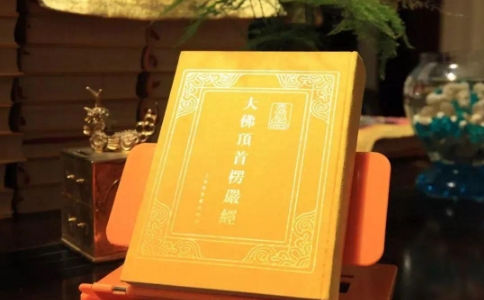
我个人学《法华经》有一段因缘,跟大家分享一下。我读佛学院的时候,其实我喜欢的是唯识学。我那个时候有听《法华经》,但是我最喜欢唯识。唯识的好处,它解释因果很清楚:这怎么回事?我今生没有造这个罪,为什么得这个果报?因为仓库里面有。
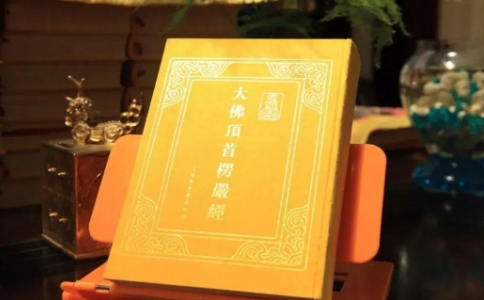
你要想学《楞严经》,放下识心,放下一切执著。就像一张白纸,原来什么都没有,你想怎么画就怎么画;如果你原来有些个形相,你画什么都画不成了。我们要学《楞严经》的时候,先把一些思虑、缘念——就是我们自己所有的一些想法——你都要放下,就像一张白纸似的无知。
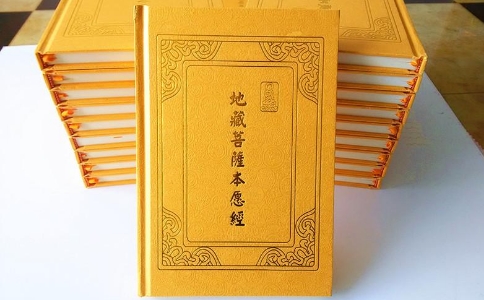
“檀”翻为中文是布施的意思,“六度”首先是布施、“尸罗”是持戒、“羼提”是忍辱、“毗离耶”是精进、禅定,最后第六度是般若。这六度是作为一个菩萨行成就佛果的六大科目,布施度悭贪、持戒度毁犯、精进度放逸、忍辱度嗔恨、禅定度散乱、智慧度愚痴。

居士问:师父,初学者读《地藏经》读第几品?我心里想读第九品的,读全文上班没时间,可以只读第九品吗?一如法师解答:《地藏经》是我们佛门的大孝之经,大乘的孝经,地藏菩萨是大乘的大孝之王,也是大愿之王,所以《地藏经》我们要多读。
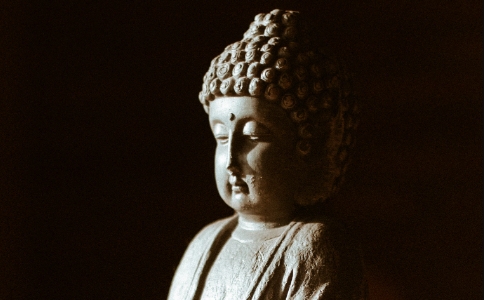
《地藏经》上说:只要在临终时听到佛名,就能得解脱。这句话看似简单,实则义理极其丰富。第一、能在临命终时,听闻到佛菩萨名的,都是福德因缘具足的人。有些老修行,到临命终时,反而业障现前,提不起佛号,甚至无缘听闻佛号,更何况平时不念佛的人,临命终时怎

为什么读《地藏经》之前,要先读觉林菩萨偈颂?一切境界都是心变现的,无量地狱相是由心变化的。心变化的是没有的,但是一切众生受地狱苦,它又是实在的。那个实在是非有的,是心所变化的。谁心里又变化个地狱啊?那是你的心变化地狱,这种变化可多了。
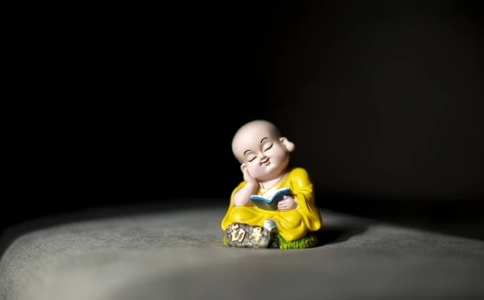
很多人因为在过去受到一些其它观念的影响——《地藏经》晚上不能念啊,念《地藏经》又出现这个那个、那个这个的现象啊,人很容易被暗示,这样一讲了,他马上就出现这种状态,所以说在念经的过程当中,就很容易出现那些幻觉。如果说有那么严重的问题出现,那佛陀首先在
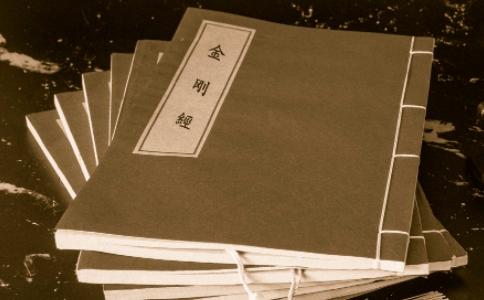
《金刚经》告诉我们的核心思想,其实就是什么?离相修行。前提是什么?你的知见不要搞成,《金刚经》讲一切都是梦幻泡影,是不是让我不修行?这是错误的。我们所有的修行都应该建立在离相的状态,而不是让你不修行。因为很多人就觉得,“师父,一切法都是梦幻泡影”,
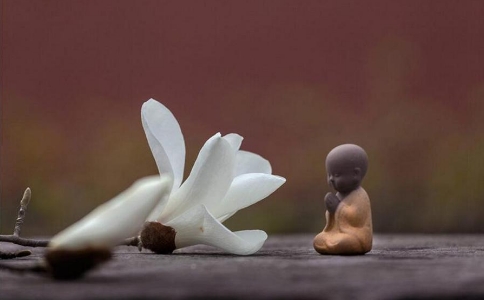
《金刚经》的中心思想是:破除我执和法执。《金刚经》就是告诉我们,如何破除我执和法执,站在生死无常的角度去看待万物,就能用很智慧的方法去看待这个世界,这时内心升起的那种信念和过去完全不一样。看到自己身体,遇到各种事时,习惯以自我为中心思维。

“如来所说法,皆不可取、不可说,非法、非非法。”这里所谓不可取的意思,是说佛法都是一时对治的机宜方便,佛法就像药一样,众生有种种烦恼的病,应病与药,这个药就是法。病好了药就可以不用了。所以说病去则药除,不可执以为真实,都是暂时假借而用,不是究竟之法。
赞助、流通、见闻、随喜者、及皆悉回向尽法界、虚空界一切众生,依佛菩萨威德力、弘法功德力,普愿消除一切罪障,福慧具足,常得安乐,无绪病苦。欲行恶法,皆悉不成。所修善业,皆速成就。关闭一切诸恶趣门,开示人生涅槃正路。家门清吉,身心安康,先亡祖妣,历劫怨亲,俱蒙佛慈,获本妙心。兵戈永息,礼让兴行,人民安乐,天下太平。四恩总报,三有齐资,今生来世脱离一切外道天魔之缠缚,生生世世永离恶道,离一切苦得究竟乐,得遇佛菩萨、正法、清净善知识,临终无一切障碍而往生有缘之佛净土,同证究竟圆满之佛果。
版权归原影音公司所有,若侵犯你的权益,请通知我们,我们会及时删除侵权内容!